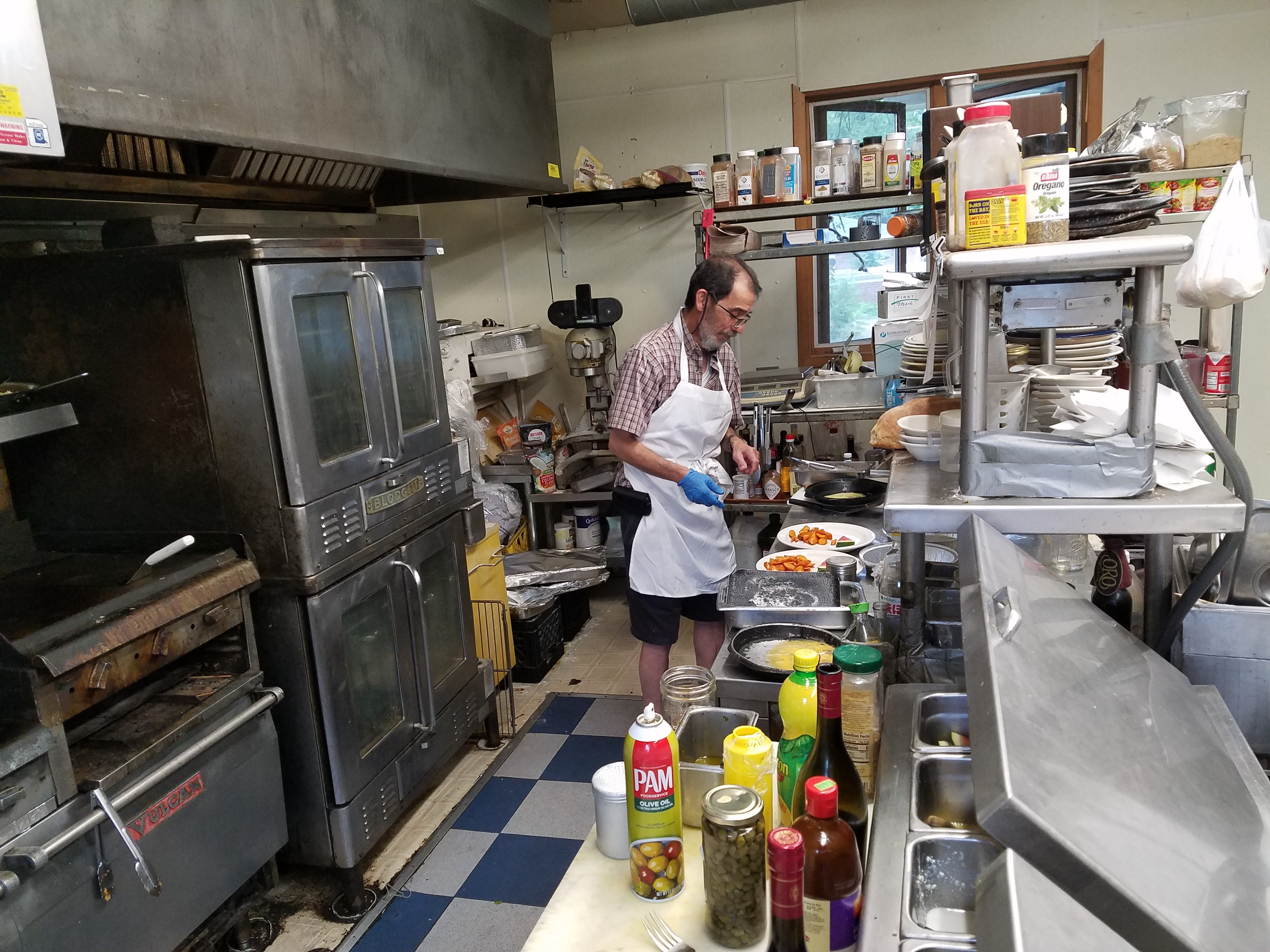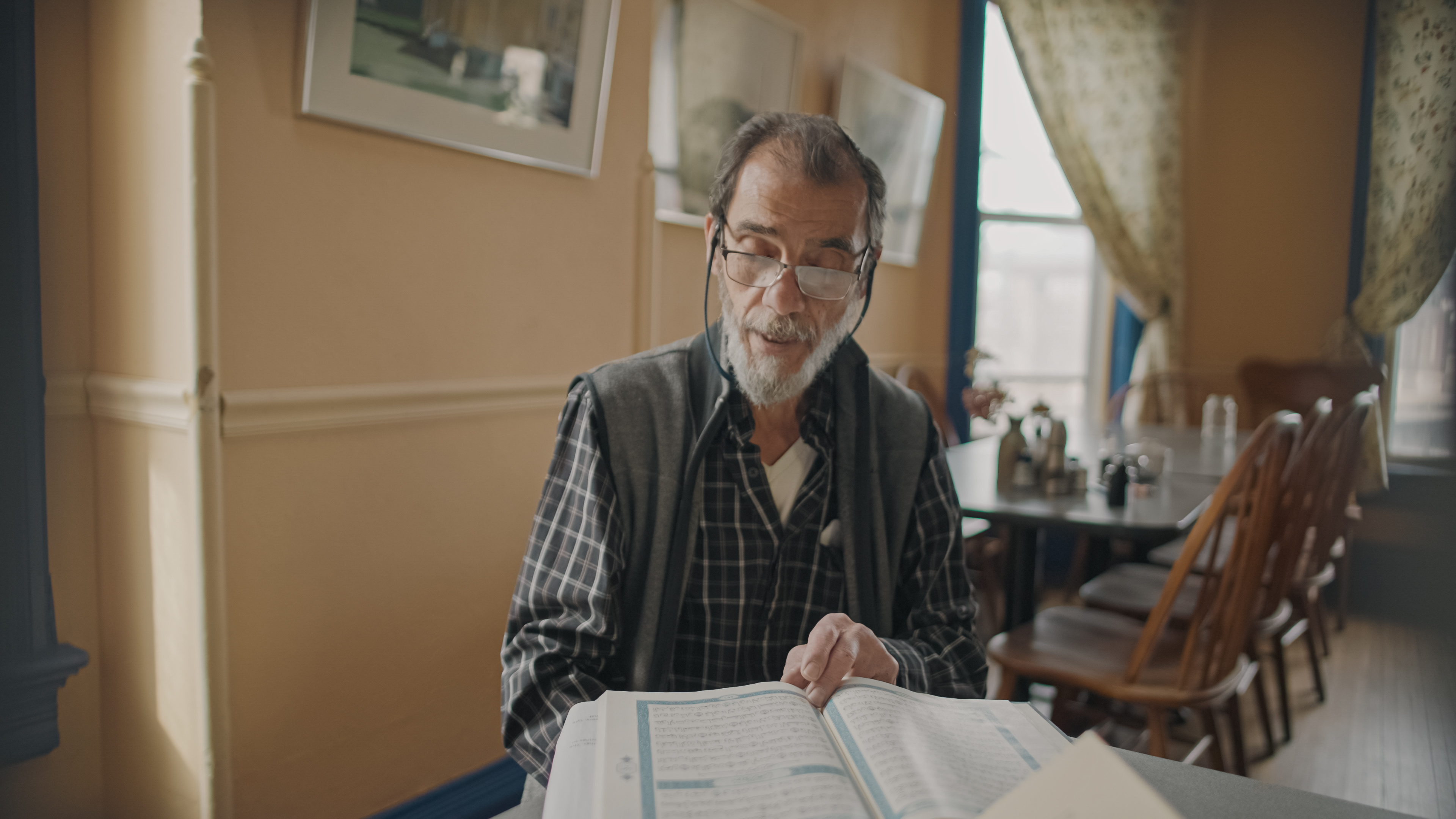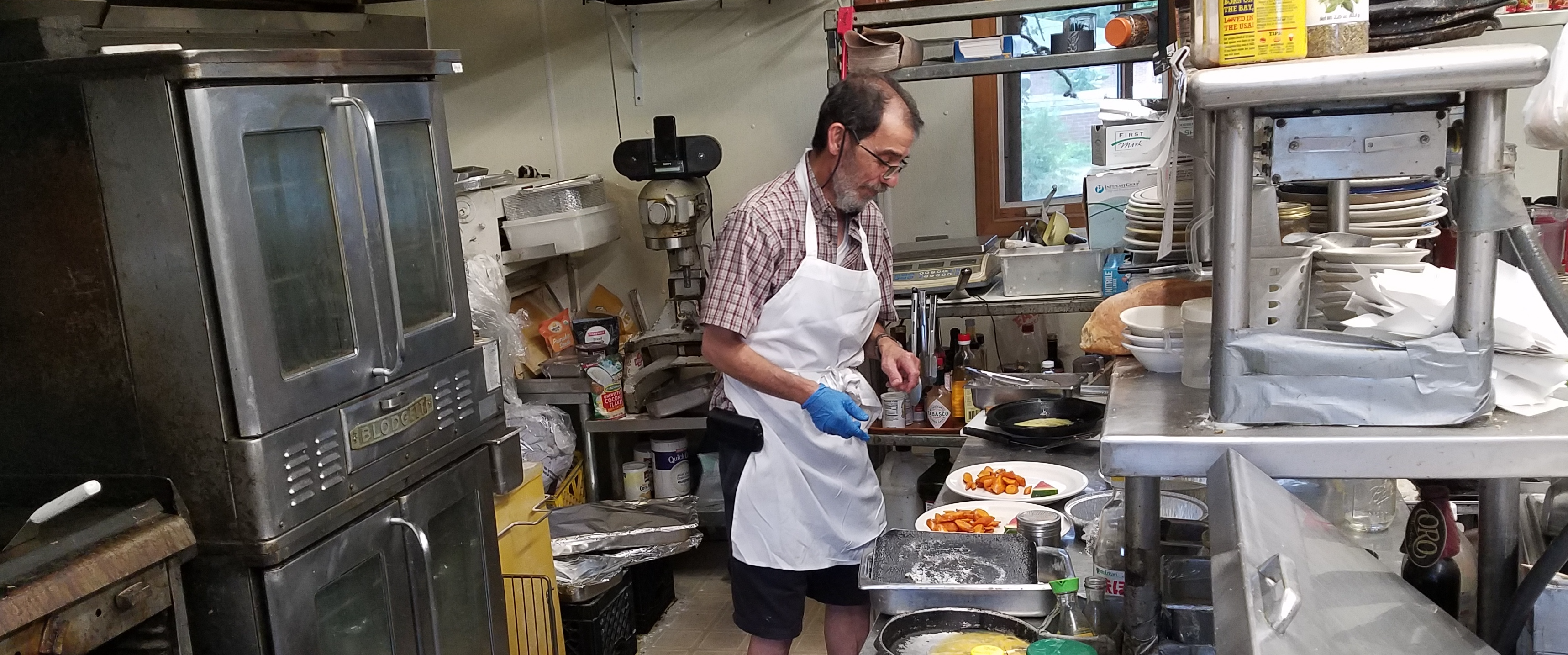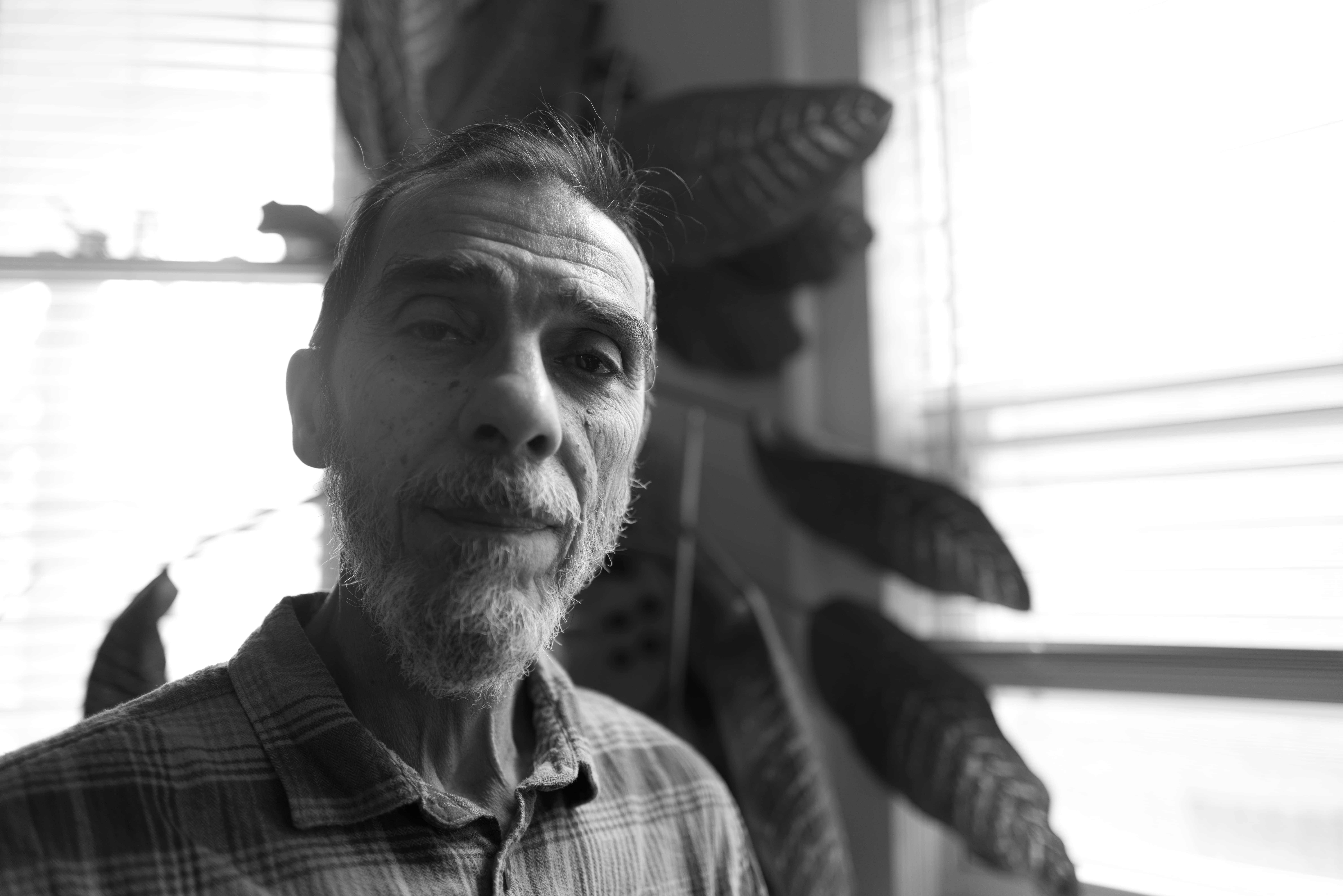In 1989, I was offered a job in Des Moines, Iowa. The first time I heard of Des Moines before that was in a political science class I took in college in which the Des Moines Register was cited in some footnotes in our textbook. I figured it must be a progressive community to have such a reputable newspaper. I also had heard of the Iowa caucuses, an institution I didn’t really grasp until I moved to Iowa and became a voting citizen. According to statistics I read when I first arrived, Iowa was then a predominantly rural state of three million people, over 96 percent of whom were white, and most of whom were Christian. As a Muslim from Egypt, this gave me pause, but during my job interview I learned that there was a mosque community a mile from work, which was encouraging. I accepted the job offer.
While driving from Chicago to Des Moines to start the new job, hunger hit me as I was passing Grinnell, a town I had never heard of. I got off the highway and drove into town to find some food. I first came upon the Varsity Newsstand and was amazed by the enormous selection of newspapers and magazines in such a small town. I bought the Chicago Tribune and the Des Moines Register. I asked the proprietor to recommend a place to eat, and he directed me to The Longhorn. It was crowded and noisy, and diners were welcomed by a host who epitomized hospitality. I enjoyed my simple meal and then walked around town for a while. I was intrigued by the beauty of the architecture and how well-kept the homes were. An interesting little town, I thought to myself.
I drove on to Des Moines and settled in my hotel room to get ready to start my new job the next day. Reading the Register that afternoon, I began to have second thoughts about my decision, as both the Des Moines mayor, John “Pat” Dorrian, and Iowa Governor Terry Branstad sounded provincial rather than progressive, to say the least.
As it turned out, Des Moines was not as progressive as I had expected. My family—Laura my wife and sons Mustafa and Adam—moved to Iowa a few weeks later after I found a rental house. I discovered that I had a not-too-friendly neighbor, who described me to her daughter-in-law as “a damn Ay-rab [who] moved next door.” Thankfully, her husband was not the same. He seemed happy talking to Mustafa across the fence.
For many years, after I dropped out of engineering school, I had had the goal of opening my own restaurant. Now, during the next few years in Des Moines, I followed guidance I got from a business adviser and worked in the culinary industry in all stations as preparation for opening my own establishment. Three years and a third son later, I thought about Grinnell as a restaurant location, and I began to search for a suitable place there for rent or lease. To start a business, one needs to have a plan and enough capital to finance at least the first 6 month of operation. All I had, as they say, was a wing and a prayer. When I found a place, though, I felt I was ready and, though my plan was vague and I had only $2,000.00 in capital, I took the lease, began to remodel, and started hiring staff. I started learning about the college through my new staff. My first employee, who became in effect son #4, was a great help in both remodeling and running the restaurant, which I named The Last Egyptian. Not surprisingly, after a little over two years of trying to build the business, I lost the lease and ended up with significant debt. But not everything was lost.

Chef Kamal Hammouda in his restaurant’s kitchen. Photo by Jon Andelson.
In the interim, some of the Muslim students on campus—who hailed from Yemen, Morocco, and the south side of Chicago, among other places—found me and asked me to be their Imam, which is the Muslim prayer leader and “spiritual advisor.” I don’t believe this was because I was very knowledgeable; more, it was because I was their elder. We began performing the communal prayer in the back of the restaurant, and as we got to know one another, it gave me a modicum of a sense of community. The students frequently challenged me by questioning the premise of the sermons I gave after prayer. While I was a practicing Muslim, I was not a scholar in Islam, and that necessitated my studying primary sources to verify who was correct, my challenger or myself. It also made me more aware of the cultural differences we each brought to our practice, which deepened my sense of diversity. Spiritually, I was enriched and became a little better as a Muslim.
Meanwhile, on the business side, one customer, a college faculty member, and his wife, upon hearing about the loss of The Last Egyptian’s lease, suggested that I try again. My response was the obvious: I was broke. The couple suggested drawing up a fundraising proposal and sharing it with select people in the community. Who would finance a failure, I asked? They gave me a list of names and I cautiously reached out to them. We raised only one-third of what I thought was required on the back of this modest proposal. I was apprehensive, but my wife reminded me that the money was many times more than what I had first started our first venture with. So, I agreed to try again.
I was very fortunate: the property owner where I wanted to restart was willing to lease with option to buy. Not only that, he agreed to do all the mechanical work needed for the cost of materials, which allowed the modest pledges we received in response to our proposal to go much further. Other community members came forward as I was remodeling and offered physical help. Also significant was the diversity of faith backgrounds of our investors. A dream that began as a business venture ended up as a community affair.
Surprisingly, the new restaurant was a financial success from the beginning. Learning from the first experience, I adjusted a few things. Instead of the obscure name of the first endeavor, which meant something only to my wife and me, I named the new restaurant, risen from the ashes of the old one, the Phoenix. I changed the menu to eliminate what didn’t fly the first time, and I started experimenting with new recipes that I market-tested on our investors. That made the enterprise more customer-driven, which gave me hope. In fact, many of the customers became friends rather than just customers.
I paid off the building in less than four years and stopped looking for an exit strategy, for I relished the sense of community I had found. Not all of Grinnell embraced me, but those community members who did frequent the restaurant gave me advice and viewed me as just another member of humanity, regardless of my religion or ethnicity. That was gratifying and reassuring.
I had moved my family from Des Moines despite the nay sayers, and that turned out to be the beginning of my communal spiritual journey of growth. The restaurant wasn’t without detractors. Some refused to try us for whatever reason they could come up with: we didn’t serve pork, the building exterior wasn’t nice, I sold drugs, I hired gay people. There were many more. My kids weren’t spared, either. They had their share of abuse, but we persisted. Things were going so well that I built an addition. Shortly after we opened, 9/11 happened and the business declined, maybe because I was Muslim.
I continued being the Imam unofficially and led prayers with the students wherever we could find space on campus. A newly appointed College chaplain invited me to join her staff, which I did without pay from the late 1990’s to the early 2000’s, then officially, so that I could easily use campus vehicles to take students off campus during the high holidays, serving in this capacity till 2015. Through my position I got to meet church leaders in the community, two of whom invited me to give the homily to their congregations, which was very enriching.

Kamal Hammouda reciting from the Quran. Photo by Nich Perez.
I ran for office as an independent candidate for the state house and because I got trolled by some because I’m Muslim, I trailed badly on election day. Later, I ran for mayor to bring a different perspective to the mix, to encourage other entrepreneurs like me to move in and add cultural diversty to the town. I lost, twice. I concluded that the majority don’t want change, don’t value change, and want only people like them to be in charge.
Reflecting now on over 30 years living in Grinnell, decades marked by both failures and successes, what do I feel? Jaded, fulfilled, empty? I’m not sure. But I keep on. Here is what I’m doing: the Quran tells us to share with others from what Allah has given each of us. Financially, I’m not rich but I can cook well, and I have always enjoyed cooking. During the Covid pandemic, I was inspired to give from that wealth. My wife and I decided to start a not-for-profit organization, The Iowa Kitchen, to provide a free weekly meal to those in need. We don’t ask questions to “qualify” our diners for a free weekly meal, and we train volunteers to cook and serve. The public, especially our former customers, who are our community members, have been generous in their support. We just completed four years of service and are going strong. As a cook, I feel fulfilled. As the accidental Imam, I still advise whoever seeks my advice. How do I feel? I feel OK. Laura and I raised three wonderful human beings, established an ongoing organization to help mitigate food insecurity, and, through the restaurant, we exposed many community members to different cultures and cuisines.
Personally, despite the many mistakes I have made in life and the bigotry our kids and I have encountered and still encounter, I have gained deep joy from the community that we have built and, overall, I feel good about the life I have led. I feel ready to meet my maker. As I await that inevitable moment, I continue to try to improve myself. It is only too late when we are six feet under.
Until that moment comes, let me cook a meal for whoever comes to visit.


